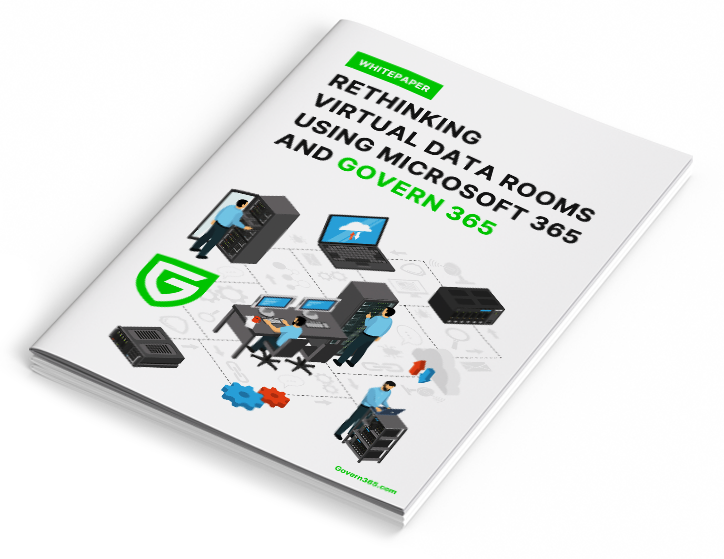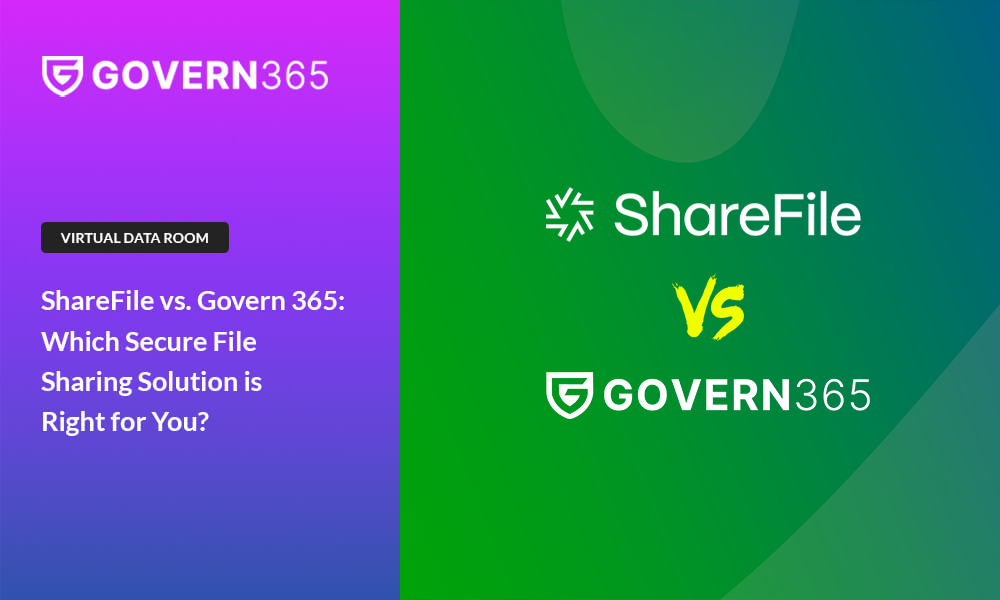STAY CONNECTED
EXPLORE MORE
- Compliance (7)
- Data Room (29)
- Life Science (2)
- Mergers & Acquisition (1)
- News (1)
- Secure Collaboration (10)
- Self Provisioning (3)
- Uncategorized (1)
Introduction
Virtual Data Rooms (VDRs) have become increasingly popular for use in board meetings. VDRs are digital platforms that provide secure, centralized storage and sharing of sensitive documents. According to a KPMG’s Audit Committee Institute survey, leading global companies are rapidly adopting board portal software. This adoption is driven by the numerous benefits that VDRs offer for board meetings, including improved data management, document control, real-time data sharing and communication, and platform security and transparency.
Examples of VDRs in Board Meetings include storing board books, policy manuals, meeting minutes and agendas, financial statements, M&A proposals, and other important documents in one place for board members. Various market studies indicate that Document control is another important factor, as VDRs offer 100% control over documents and the ability to set file access permissions for board members, investors, or committee members.
Here are some examples of how VDRs are used in board meetings:
- Preparation: VDRs allow board members to access important documents and information in advance, ensuring that everyone is prepared for the meeting.
- Agenda Setting: VDRs provide a centralized location for setting the agenda and tracking progress, making it easier to manage the meeting and stay on schedule.
- Document Sharing: VDRs enable real-time document sharing and collaboration, eliminating the need for physical copies of documents and reducing the risk of missing information.
- Discussion: VDRs provide a secure platform for real-time communication and discussion, allowing board members to collaborate and make informed decisions.
- Decision-Making: VDRs provide a centralized location for recording decisions and tracking progress, ensuring that all board members are informed and on the same page.

Download VDR Whitepaper
Stop spending on purchasing expensive Virtual Data Room (VDR) solutions. Use Govern 365 to quickly create Microsoft 365 data rooms or SharePoint online data rooms.
Why Are Virtual Data Rooms Important for Corporate Boards?
VDRs are increasingly becoming an essential tool for corporate boards, and here are some reasons why:
Better and Faster Board Meetings
VDRs provide board members with the information they need to make informed decisions, allowing them to spend less time gathering information and more time discussing and making decisions. Additionally, VDRs provide real-time communication and collaboration, making meetings more efficient and reducing the need for follow-up meetings.
Centralized Data Management
VDRs provide a centralized location for storing and organizing critical information, ensuring that all board members have access to the most up-to-date information and reducing the risk of missing important data. VDRs also provide a secure platform for document management, reducing the risk of data breaches and ensuring the confidentiality of sensitive information.
Document Control
VDRs provide a secure platform for document control, ensuring that all documents are up-to-date and easily accessible. Board members can also track changes to documents and keep a record of who has access to them, making it easier to maintain control over critical information.
Real-Time Data Sharing and Communication
VDRs provide real-time data sharing and communication, allowing board members to collaborate and make informed decisions in real-time. This eliminates the need for follow-up meetings and ensures that everyone is on the same page, making board meetings more efficient and effective.
Platform Security and Transparency
VDRs provide a secure platform for document sharing, ensuring that all information is protected from unauthorized access. VDRs also provide a transparent platform for document management, ensuring that all board members have access to the same information and reducing the risk of misunderstandings.
According to the same KPMG survey, half of senior management and directors said their companies currently use software for board meetings, and another 20% expect to find a board portal provider in the next 6-12 months. This growth in adoption highlights the importance of virtual data rooms for modern board meetings.
Conclusion
In conclusion, virtual data rooms are an important tool for corporate boards. They provide a centralized platform for data management, document control, real-time data sharing and communication, and platform security and transparency. By streamlining the board meeting process and enabling more efficient decision-making, virtual data rooms are helping to shape the future of corporate governance.













